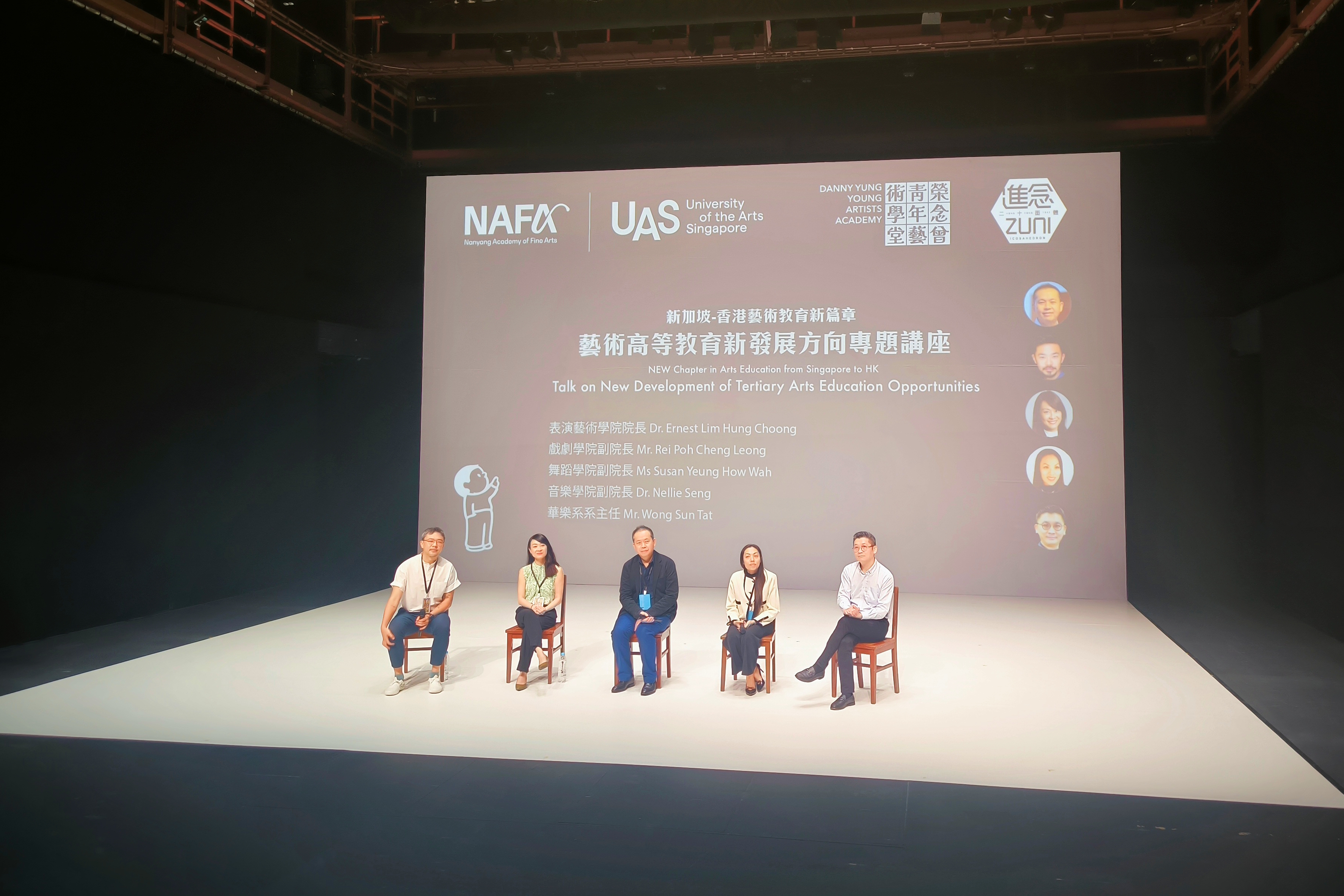
The goals of the first three-year bachelor’s program in Asia’s contemporary Chinese theaters were raised on Saturday at the Hong Kong Cultural Centre during discussions about developing higher arts education in Singapore and Hong Kong.
Organized by Hong Kong-based arts organization Zuni Icosahedron, in collaboration with the University of the Arts Singapore, experts shared their views on the complexities of nurturing the inner life of artistic individuals, highlighting the challenges faced by art educators.
Rei Poh Cheng-leong, associate dean of the School of Theatre at the Nanyang Academy of Fine Arts, introduced the institution’s Bachelor of Arts (Honors) Contemporary Chinese Theaters program -- the first three-year BA program in Asia to produce thespians who’re aware of the understanding of history, cultures and languages of modern-day Chinese theaters.
ALSO READ: Renmin University's play Shanbei Public School stages Hong Kong debut
“In their first year, students will be trained in the techniques and expression of traditional Chinese operas, experimenting with the embodiment of Chinese culture through theatrical practices,” he said. Developing the ability to inherit traditional forms while creating contemporary interpretations and self-expressions is one of the key points of the course assessment, he added.
Mathias Woo, artistic director of Zuni, told China Daily his organization has contributed to the degree’s course design. The students can engage in dialogues with performers from other Asian countries and cultures, explore various forms of theatrical art embodiment, and foster responses to current industry demands in Chinese theater, he said.
“Most of the students in this program are from the Chinese mainland. In Singapore, they can enter higher arts education programs that are taught in their first language, Chinese,” he added.
UAS Vice-Chancellor Kwok Kian-woon said theater and drama could be particularly instructive in addressing major contradictions in a fast-changing world, such as the conflict between technological advancement and its impact on humanity.
READ MORE: Officials: Hong Kong scaling up partnerships to empower youth
“The creation of art is rooted in specific traditions that are passed on over generations. The inheritance of artistic traditions involves mentorship and yet is open to questioning, innovation and creative breakthroughs, especially in the face of technological change,” Kwok said.
The educators agreed that, beyond specialized skills, arts education must empower youth with the ability for self-growth and the capacity to grapple with increasingly complex societal and global challenges.
Wong Sun-tat, head of Chinese Instrumental Studies at NAFA, said the performance industry evolves rapidly, and students must be trained in the context of reality. The school offers internship opportunities from the early stages of the program to equip them with the appropriate techniques and mindset.
Nellie Seng, associate dean of the School of Music at NAFA, said musical excellence isn’t defined by technical mastery alone, but by the holistic development of the musician -- as an artist and a person.
READ MORE: How can HK nurture its next musical stars?
Susan Yeung How-wah, associate dean of NAFA’s School of Dance, stressed that the journey of becoming a dancer, marked by resilience and discipline, is invaluable for personal growth. The training demands an open mind, a willingness to embrace discomfort, continuous self-challenge, and, most importantly, perseverance.
Anna CY Chan, director of the Hong Kong Academy for Performing Arts, urged educators and policymakers to embrace the responsibility of broadening educational practices and engaging in dialogues that address the creative tensions and challenges through collaboration and partnerships.
The University of the Arts Singapore is the city state’s first arts university, founded on an alliance of leading arts institutions -- LASALLE College of the Arts and the Nanyang Academy of Fine Arts.
Contact the writer at irismuk@chinadailyhk.com



